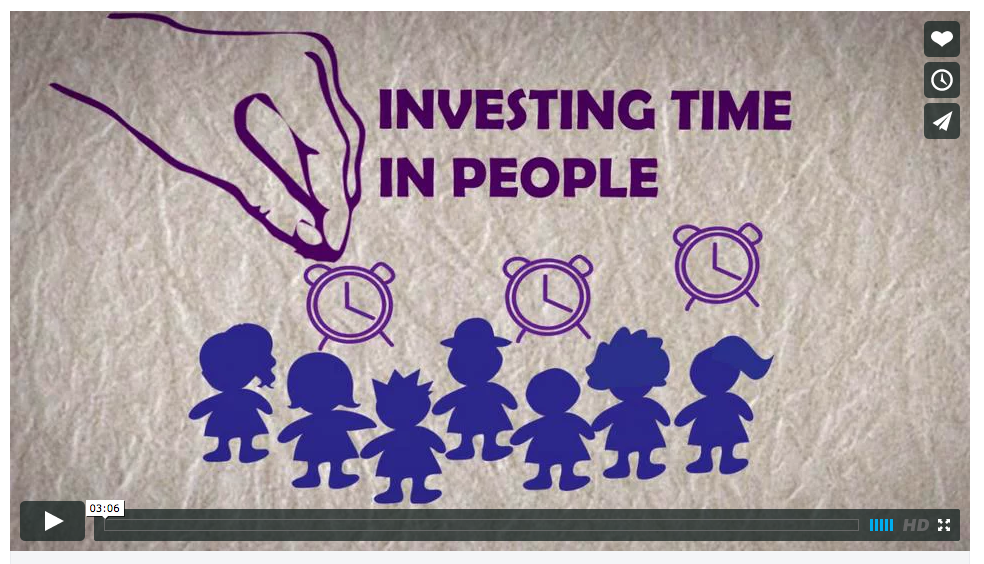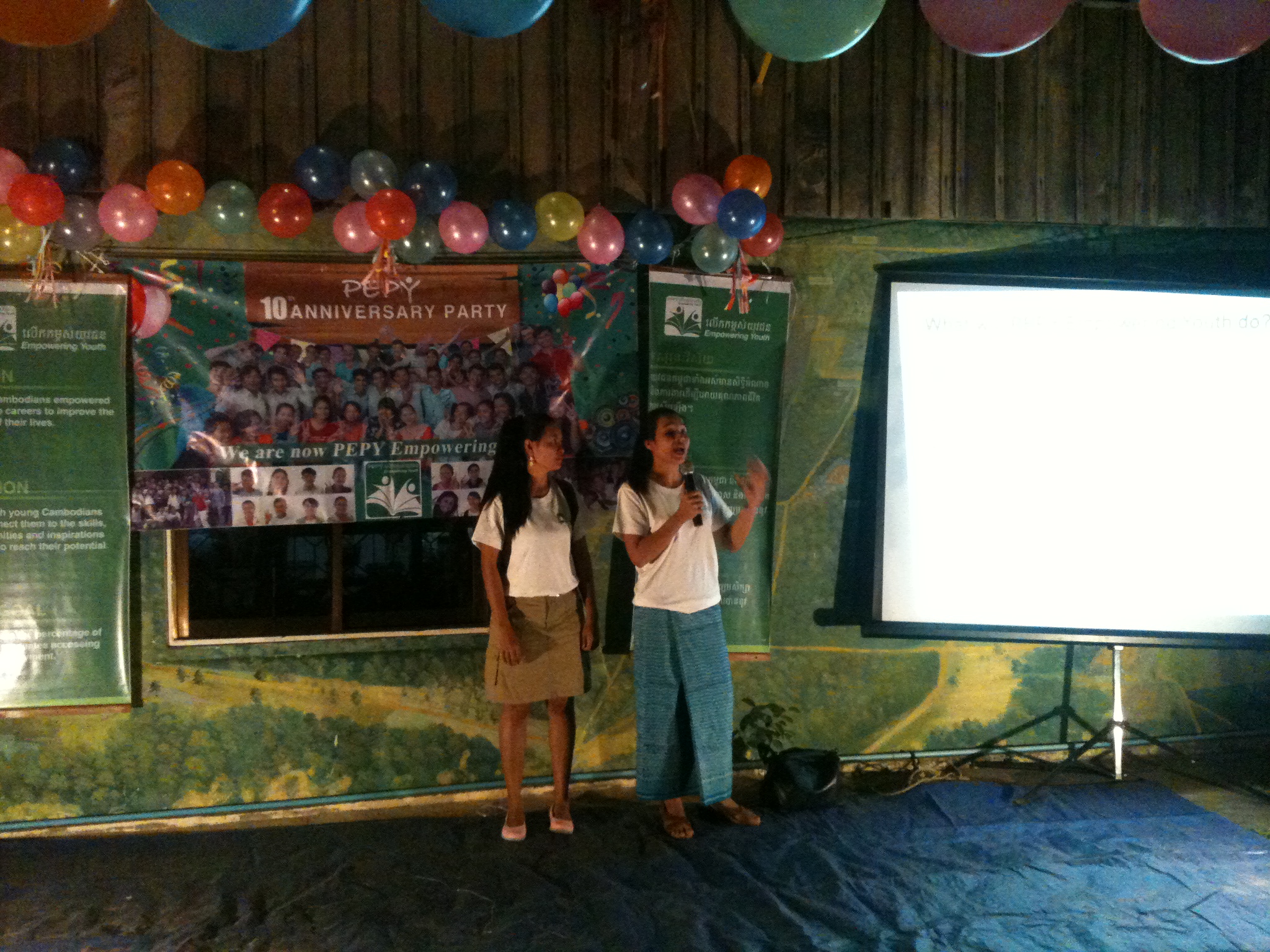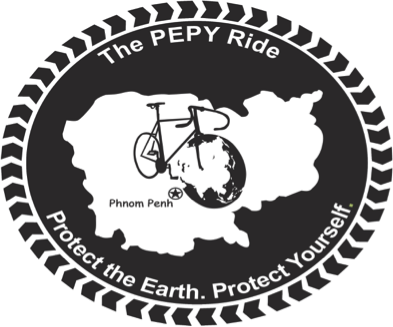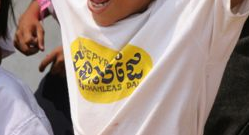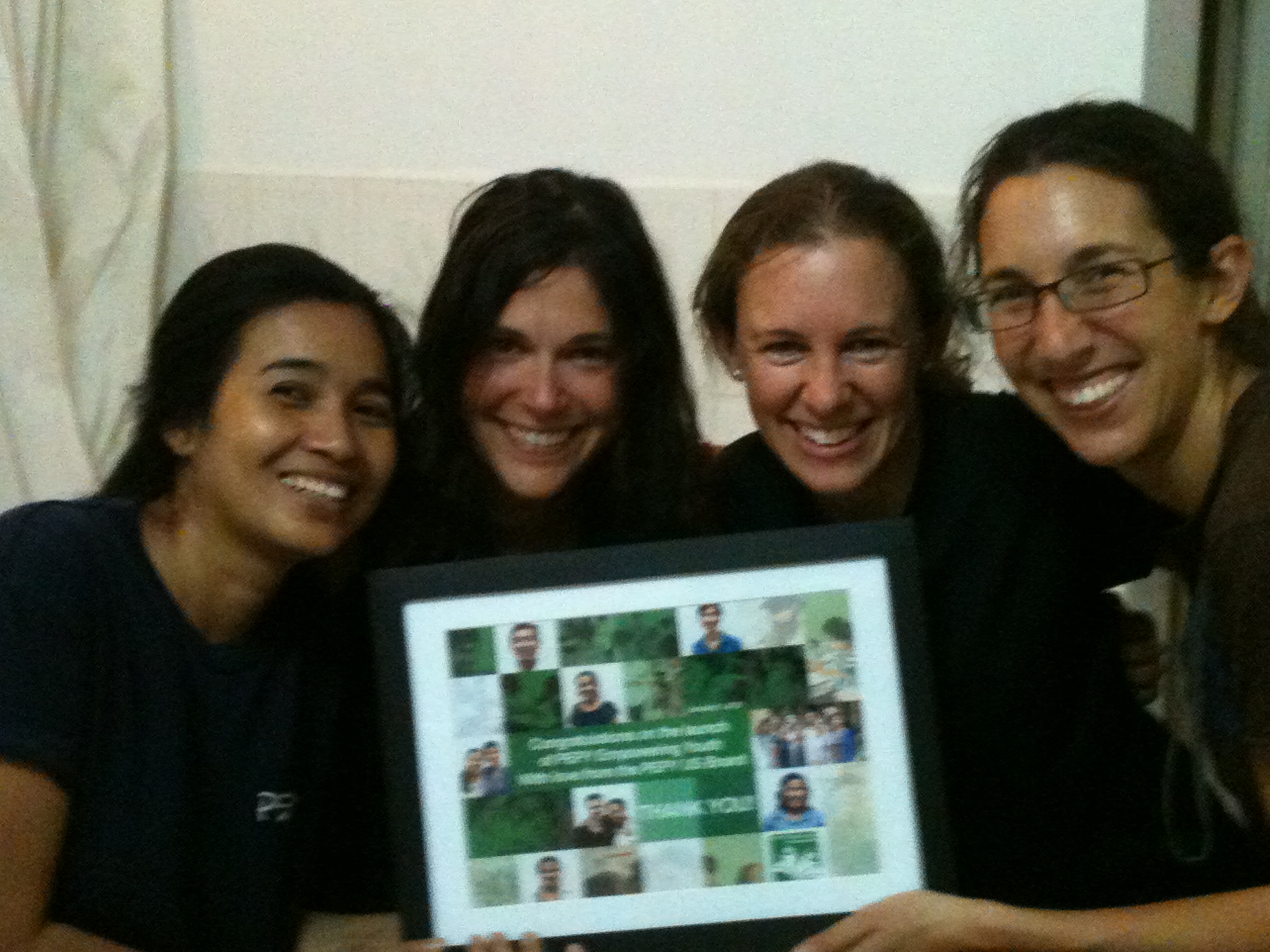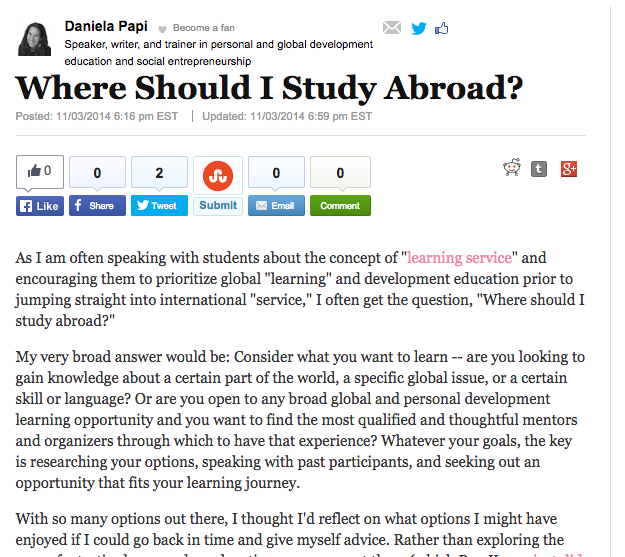Ripples & Magnets: Celebrating a decade of PEPY People
PEPY, a hybrid organization I helped found in Cambodia is celebrated its 10-year anniversary last week, and in reflecting on this milestone, I was intrigued to explore the ripples and magnets that have fueled and been fueled by our work.
Ripple effects imply cause and effect, and in some of these ripples we were the rock and others we were the water. That said, in most cases, it was a matter of magnets not ripples, where the people who were attracted to our work and who we were attracted to enough to want to work were drawn to each other, like magnets, brought together through shared core values. This has created a community web, or PEPY extended family, with ripples and magnets connecting and projecting all around the world.
For those not familiar with PEPY, we started out as an education organization (PEPY Cambodia) and expanded to include an education travel provider (PEPY Tours) and an advocacy organization (Learning Service). Since making our first website and naming the organization in December 2004, we have gone on quite a learning journey of our own (watch this short video from a few years ago to get a window into that journey).
Over the last ten years, in addition to working with a few thousand Cambodian students, teachers, and staff, we have also gotten to meet hundreds of people from around the world who have traveled on our tours or worked in our offices. In reflecting on our work, one of the things that makes me smile the most is following the journey of those who have been a part of PEPY. We have been lucky to attract fantastic people, and it’s fascinating ten years on to see how our work was impacted by them, and how some of them went on to later incorporate our shared experiences in Cambodia into their ongoing social impact work. As the video above showed, our impact thesis changed over the years, but though our “mission” didn’t explicitly focus on the peripheral impacts of our programs, it was those unintended ripples that might have the biggest impact on the world. Today I am smiling on the peripheral waves, the side projects that continue to make their own ripples – like the impact of helping two of PEPY’s incredibly talented Cambodian interns learn about and win scholarships to a three-year European university and then go on to excel in their studies, return home to Cambodia, and start high-impact ventures of their own (some of the many initiatives introduced below).
These are a list of entrepreneurial ventures, educational initiatives, and other work started and supported by PEPY’s team members, past and present. This is certainly not a complete list, as I am sure I have missed many (and please let me know about those in the comments below!). While we have been told by some people that they took inspiration from their time at PEPY, we are by no means claiming these initiatives are an “impact” of our work – rather this is a list for us to map the collective positive efforts of the PEPY community and to connect readers with these inspiring and inspired organizations and opportunities around the world.
In Cambodia:
SmallWorld : There is a whole conglomerate of Cambodian-led social impact organizations that fall broadly under the organization “Small World” led by Rithy Thul, who spent a few years working on PEPY’s education programs and continues to occasionally lead trips with PEPY Tours (like the PEPY Ride X which he is co-leading right now!). Rithy’s extended support team includes a number of past PEPY team members, like Lach Vannak who worked on PEPY’s communications team (currently working with a Swedish organization to promote the use of ICT for freedom of expression and democracy and the respect of human rights in Cambodia) and Noem Chhunny, who was PEPY’s Dream Manager (now also a director of Possibilities World, a human resource training and personal development organization working with companies and social ventures across Cambodia). Though Rithy was certainly an exceptional leader long before he came to PEPY, the long-tail of our impact map certainly brings a smile with Rithy’s reflections on how the “family” feeling and core values of PEPY have influenced his work at Small World. As part of the PEPY Ride X, we went to SmallWorld and got to see a series of 5 minute pitches about many of these ventures, which was one of the most inspiring evenings I’ve had in a long time. I can’t wait to see what sorts of business, ideas, and inspiration will continue to stem from their work, including the amazing SmallWorld band:
Toursanak : One of the spin-offs from Small World’s incubator and Cambodian entrepreneurship hub is Toursanak, an education travel company run by Thavry Thul, one of the above mentioned former PEPY interns who went on to study in the Czech Republic. In addition to being an author, translator, research assistant, blogger, and speaker on women’s leadership issues in Cambodia, Thavry manages this growing educational travel company offering tours for Cambodian and foreign groups across the country. Thavry also recently co-founded another company doing research assistant and translation work for academics working in Cambodia with Endear Van, one of the students who graduated from the Asian University for Women (AUW) in Bangladesh (which PEPY used to partner with, managing the Cambodian portion of their scholarships). Thavry and Endear will also both help run the Spoong Venture Entrepreneurial Program, funded by a US government grant, offering a series of 11 day start-up training programs in Phnom Penh. (Another AUW graduate, Kimsru Duth, began working at PEPY upon her return to Cambodia and is currently the Program Manager at PEPY Empowering Youth.) Endear is engaged to another former PEPY intern, Sopheak Chheng, photographer and TV producer, who is also highly involved in SmallWorld and who returned to Cambodia after studying abroad in Middlebury College in the US.
Codingate : The other scholarship recipient and former PEPY intern, Sok Sopheakmonkol manages another Small World spin-off, Codingate, offering web development outsourcing service to local and international businesses. In their first year they have been able to create 18 jobs and 8 internships for young Cambodians, brought in enough money to provide their team with 15 laptops, served 28 client companies, and have 50 more projects in the pipeline. Along the journey, another former PEPY team member, Hangchhay Ao joined his team as well and, together with Rithy they lead the enterprise, working to support and inspire young talented Cambodian leaders to create technology that matters for business and society.
KhmerTalks : One of the reasons Rithy and I worked together in 2010 to bring the first TEDx to Cambodia, was so that Rithy could learn the TEDx model and bring a similar approach to shared learning conferences in Cambodia… and he did. Rithy formed a group called “KhmerTalks”, a Khmer language talks series similar to TEDx that runs a series of inspiring talks by Cambodians for Cambodians. Many of PEPY’s current and previous staff continue to be involved in organizing the regular Siem Reap talk series including Cho Choch, Hanty Ung (who now works at Angkor Hospital for Children in the visitors education centre – so visit her and say hi!), Sopheak Sun (who now works with ICS helping to spread social entrepreneurship education), Sreyneang Sun (PEPY Tours finance/accounting/logistics/planning guru!) and Seak Ngoy (who has continued to work at PEPY Empowering youth in both HR and scholarship support capacities). Seak also helped launch the KhmerTalks Siem Reap website along with PEPY team member Manin Oem. Many PEPY staff members have spoken at their events, including Kimline Nuch, PEPY Empowering Youth’s Executive Director.
Brown Rice, Our Muscovy Duck Soup Restaurant & Artillary : In Siem Reap, two local restaurants were founded by PEPY team members – Brown Rice’s founding team includes Cho Choch and Seak Ngoy and Our Muscovy Duck Soup Restaurant was founded by the entrepreneurial Sela Chham who used to work with PEPY Tours. Brittany Sims, who we met when she was doing around the world interviews about social enterprises, later was a guide for PEPY Tours and then went on to purchase and expand Artillary, a group of healthy and delicious restaurants in Phnom Penh (and soon to be Siem Reap!).
Miss SEW : Former PEPY team member, Sopheak Sun also recently created her own company as a side business alongside her main job supporting and training social entrepreneurs through ICS. Miss SEW offers custom furnishing and upholstery services with a smile 
Angkor Walkers : Though Yut Chhon was one of the best tour guides in Cambodia long before we met him, since working with PEPY Tours, Yut decided to create his own brand (Angkor Walkers – we love it!) and build an online platform though which to promote his Buddhism and Cambodian history tours. We have loved learning from and with Yut, and are delighted to see that his business has grown with the support and recommendations of people around the world (including many of you!).
Maison 557 : After joining PEPY in Cambodia in 2009 through the Dubai Cares trips, Jeff Strachan later joined the PEPY board. He then came out to join a number of trips, visits, and a “should we start a PEPY guesthouse?” exploration visit about two years ago. While we decided not to move forward with the PEPY guesthouse, Jeff did find a beautiful property and decided to buy their business (now consistently ranked around #1 on TripAdvisor for Siem Reap B&B’s & Inns!)
And the global reach of board members and fundraisers: Over the years, many amazing past PEPY volunteers have joined the board in addition to Jeff: Maryann Bylander (PEPY’s former MD whose research is discussed below), Dominic Giuliani (who helped file our original PEPY paperwork and now helps improve legal, tax, and accounting practices for a healthcare company), Conor Hallisy (who has been the guiding legal-light behind PEPY’s localization process and who, in addition to his job, noted that it was his two trips with PEPY that were part of what inspired him to take on a pro-bono asylum case for a Nigerian play-write), Christina Beckmann (who used to run a company called Xola which started as a voluntourism consultancy with PEPY as one of the first partners and who now works with the Adventure Travel Trade Association), Tim Rann (who, after joining a PEPY Tour while in college, came back as an intern, then went on to work with a social investment fund followed by serving as CEO of Joma, a successful social enterprise coffee chain in Vietnam and Cambodia, and is now working with Mercy Corps managing their South East Asia investments based out of Jakarta), Peppi Stunkel (who now co-manages a turtle conservation intro’d below), Greta Arnquist (PEPY co-founder, whose global guiding is intro’d below), Shannon O’Kane (who went on to help run a music non-profit and now works with Where There Be Dragons helping to organize fantastic global education tours), Adam Vaught (a pro-guide intro’d below), Paul Doyle (who joined the team as a Accountanting for International Development volunteer and who has been the finance and accounting team support for the last few years), Jacqueline Kronk (who went on to work for PEPY sponsor, Anthony Travel, where our long-time advisors and supporters John & Katie Anthony and Steve Egan all work, and who now raises funds and awareness for the Boys & Girls Club of St. Joseph County), and the fantastic co-board chair Andrea Messmer (who now works with my husband, Andy Thornton, at 8 Degrees North, an exciting new company working to create an ethical and fair-trade model of palm-oil production in Ghana). Jacqueline helped set up a subcommittee to the board focused on supporting fundraising efforts, and Maria Hach, Adam Morse, and Pramod Thummala were integral in helping PEPY improve long-term fundraising plans while Kamelia Zaal (whose landscape design company was recently selected for the very prestigious Chelsea Flower Show) helped host a few large-scale PEPY fundraisers in Dubai with the help of many other past PEPY participants, including Jeff Strachan – and along with PEPY Board member Dominic Guiliani, Drew Brennan also hosted a number of Notre Dame related PEPY events (and all of these people helped get their friends and companies involved in supporting PEPY – thank you!). The lovely Shannon O’Kane has managed our thank you notes for US checks for the last few years, a thankless job that PEPY supporter Jane Dixon did for many years (and she and her son, Adam Herz have helped fund PEPY for many years) while my amazing mother, Patricia Papi has taken on the burden of managing check deposits, bank meetings, and all sorts of paperwork for PEPY over the last decade, for which all of us are grateful and indebted. Though she retired from teaching a few years ago, she continues to be my personal driving force behind a belief in education as the key to change in the world. Olivia Blau (my family dentist who has often done pro-bono dental care for people who need it and volunteers annually on a Navajo reservation) and her husband Larry Blau (who volunteers with his wife and has done PEPY’s US tax filings and 990 paperwork pro-bono for many years along with a large range of other pro-bono clients across the US) came out to visit PEPY in Cambodia (with Larry returning annually to help file our 990s) and then went on to be major PEPY donors who are setting up an additional fiscal sponsorship channel for PEPY in the US during this transition to a local organization. During his first (of two!) PEPY Rides across Cambodia, Rakesh Mehta had his fortune read and was told he’d “meet his future wife very soon”…. which indeed happened almost immediately after returning home (and they just welcomed their first child! Congrats!) After returning home, Rakesh decided to set up a UK entity to fundraise and support PEPY, which is how CDEF, Cambodian Development & Education Fund was born. SOOO many of you have continued to support and fundraise for PEPY, supported our Learning Service videos and upcoming book, gotten your businesses onboard with PEPY, and so much more, and the list would be as long as this extremely long blog post again if we included you all. THANK YOU for continuing to fuel the work of PEPY for so many years.
Other past PEPY Staff continue to do interesting things in Cambodia, including Ream Noun, who we brought to a meeting with Room to Read in 2009 and who now continues to write books that Room to Read publishes that get used across Cambodia. Vanna Suors, who was a teacher in Chanleas Dai and eventually also served as a classroom library officer for PEPY has now been recruited to work at the Provincial Office of Education in Siem Reap, meaning his skills as an educator will now have a wider impact across the province. Our former Phnom Penh based accountants, Judy Tauv, Chenda Chhay, and Rany Te are all still studying and/or working in accounting, with Rany at USAID and Chenda still continues to support the DDD team in addition to her job. Khath Samal (who works with the Ministry of Education Youth and Sports in Ratanakiri while also still advising the PEPY team from time to time), Meas Vanna Aline (who manages an association running micro-credit projects, health education, and a social business), and Va Vuthy all continue to work across the education sector, as do a number of our former Khmer staff whom I have not been in contact with recently.
New versions of PEPY Cambodia and PEPY Tours: Both of these organizations are turning into local spin-offs of the original organizations led by our fantastic Cambodia-based team members.
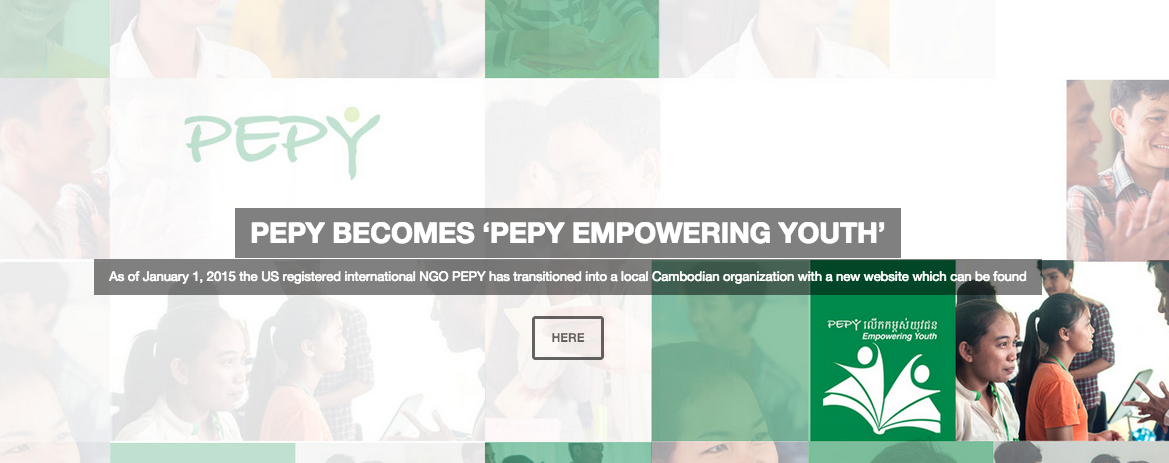
PEPY Empowering Youth: As of January 1st, 2015, PEPY Empowering Youth, a new local NGO, has launched and taken over management of PEPY’s education programs in Cambodia. Kimline Nuch is at the head of the new local NGO with an all-Cambodia-based board including former PEPY program manager Awatd Khouth (PEPY Empowering Youth Board Chair who now works with Cambodian Living Arts in Phnom Penh) plus former PEPY Communications Manager, Anna McKeon (who went on to lead a global consultancy project working to stop the harmful practice of orphanage tourism). Jeff Strachan will also move from the foreign to the local board.
Ayana Journeys: Sarah Brown, Amy McLoughlin, Yut Chhon, and Jeff Strachan with the ongoing support of the amazing Sreyneang Sun are starting up a Cambodian travel company that will take over ground operations for PEPY Tours starting in February 2015 while also offering day tours, more extensive Buddhism tours, and more! Stay tuned!
Around the world:
City Cycle Tours : I recently had the chance to try out former PEPY Intern, Josh Bloomfield’s bike tour company, City Cycle Tours, in Vancouver and I was SO impressed. He started the company after returning home to Canada, having just led a PEPY Ride, and says his experience in Cambodia was part of the impetus to start the company – which is very cool! If you are visiting Vancouver, have recently moved there, or know someone who lives there who could use a revitalization of their love for their city, check out City Cycle Tours. Not only are their bike tours a fun outdoor adventure for a day in a beautiful city, but they are extremely educational (and entertaining) with top-notch guides, bikes, and routes! Loved it!
Fundación Yepez : Though former PEPY intern and original PEPY Ride team member, Peppi Stunkel, didn’t found Fundación Yepez, she is surely one of the driving forces behind its current growth. Peppi, her husband Ricardo Yepez, and his mother run an environmental center outside of Veracruz, Mexico, which focuses on a turtle conservation program but now also includes recycling, beach cleaning, and a range of educational initiatives. Ricardo’s father founded the turtle protection program 47 years ago, and on a recent visit with my husband and brother, we were blown away by the amount of work, dedication, learning, and love that has gone into this program for the last half-century. Visit, donate, learn – their work is impressive!
Social Impact Media Awards (SIMA) : PEPY family member, Daniela Kon has joined many PEPY tours (Seven she thinks! That must be a record!). She also worked for many months with our team in Cambodia between 2005-2009, created all of our original PEPY videos, and produced and directed the film Changing the World on Vacation, which features PEPY. (Daniela has now made a series of award-wining documentaries which you can learn about at Deeda Productions.) Daniela and I (yes, Daniela & Daniela – we could make a law firm) wrote a grant application for a web platform called “How Aid Works” focusing on the “HOW” of development as opposed to selling the “WHY” (Wei Peng animated that particular video). We didn’t get the grant, well, we didn’t even apply, as I missed the Gates Foundation grant application deadline as I misread the submission deadline thinking it was 11:59pm rather than am (oops – sorry again!), but that didn’t matter as Daniela went on to spin the concept into an even more useful format. Daniela started a documentary and video awards and screening organization called SIMA. Her commitment to getting movies and videos with social themes and teachings out into the world has been fantastic to watch and be a part of. There is a lot of PEPY love in SIMA as well: Doug Beacom has served as the Digital Content Manager while Maryann Bylander, Kristi Manning (whom we met through Dubai Cares in 2009) and I have served as judges in the contest.
Open Equal Free : Michael Jones founded Open Equal Free after working as an education consultant and team member at PEPY. He helped develop PEPY’s creative learning classes plan, and helped us spread those resources around Cambodia, making them more open, equal, and free. He then decided to do more education consulting, as he had already had extensive experience as an educator, and through OEF he helps create training and learning resources in many languages that are free for anyone to use via Creative Commons licenses. Coming soon to South America we hear!
Zoom in Projects : We can take no claim for any inspiration for this work, as Dur & Luis began their work together long before they joined our team in Cambodia, but they have certainly inspired us! While working with PEPY, PEPY Tours, and Learning Service in Cambodia they have supported us on countless projects like making the new logo for PEPY Empowering Youth and making all of the Learning Service educational videos, and they have also made amazing videos for a number of other organizations we are connected to such as Small World, Off.Grid:Electric in Tanzania, and ICS with this Social Enterprise Cambodia video about a recent start-up weekend (where two PEPY former staff members, Monkol and Chhunny, and a recent DO School graduate and friend, Kongngy Hav, made up the top-three venture winners!).
Toto Designs : Colombians have been making PEPY pretty since the start. Our original designer at PEPY, Maria Perez, is the one who introduced us to fellow Colombians, Dur & Luis. For many years, Maria Perez designed all of PEPY’s logos, marketing materials, quote book, etc….. and she continues to do great things in the world via Peace Boat and her own art and development initiatives.
Justering: PEPY Tours intern, Wei Peng returned home to China and founded an IT company with some friends in Beijing. Inspired by the research she did on CRMs (Customer Relationship Management tools) while in Cambodia, she decided to take on the challenge of creating a tool that encompassed all that a CRM tool for non-profits should be! The company delivers software and services specifically designed for nonprofit organizations focusing on project management, CRM, and fundraising. Over 1,000 nonprofit organizations in China are using their products to manage their stakeholders, funds, and projects. Later this year they are planning to release an English version of their key product, lingxi360, an all-in-one CRM which helps nonprofits manage stakeholders like salesforce, build forms like wufoo, mass emails like mailchimp. Her quote about how her time in Cambodia influenced her work one of my favorites, and so I asked her if I could share it here: “The thing is, I am pretty sure that spending a year in Cambodia with so many awesome people and Pengowl* has changed my life forever. The amazing PEPY team made me believe in the power of change, and the value of investing time in people. I truly believe no matter what my next big adventure is gonna be, the PEPYness* in me will make every journey a glorious one.” (*Note: Pengowl is a half-penguin, half-owl mascot… of course! And I love the concept of PEPYness!)
Tourism professionals with an ethical and educational touch: A number of PEPY’s past interns have gone on to work in the tourism sector. From the Backroads of the San Juans to the main streets of Havana, PEPY people seem to get around! Allana Hearn (who is now a nurse looking to pursue a career in public health), Michael Woodard (who recently spent a year in India working with gap-year students), Shannon O’Kane (who you might know as “Shan-no-no-mercy” from her roller derby days), Claire Bennett (co-founder of Learning Service, co-author on our upcoming book, and PEPY Tours development education trainer), Cat McNally (who recently took on the most important job in the world: becoming a mother!), Maryann Bylander (Dr. Bylander to you, please!) and I have all worked for Where There Be Dragons, a fantastic travel company specializing in youth leadership development, and Adam Vaught went on to become a tourism expert on Cuba! Greta Arnquist, a founder of PEPY has continued a path in tourism and youth leadership education through working with Voyageur Outward Bound School and other global travel companies (as well as dog sledding in her home stage of Minnesota in the winters)! Melissa Chung traveled to Cambodia on a PEPY Tours trip in partnership with Global Agents for Change, then came back as an intern, and now helps to manage another local travel company in Siem Reap while still living in a homestay with PEPY’s finance and accounting manger, Konnitha.
Teachers galore (and whole lot of kraut!): Many past PEPY volunteers have gone on to teach after they left Cambodia. Doug Beacom, one of PEPY’s first interns, had done the JET Programme (as many of us initial PEPY volunteers and PEPY Tours participants had) as well as Teach for America prior to joining the PEPY team. He then went on to teach at a number of progressive schools in California and he and his wife Yukiko (who designed the PEPY Hipster money belt) also started an initiative working to get people talking and learning about how we can achieve a “nuke-free world.” After a few years of teaching, and inspired to live a simple and more sustainable life (something they say was inspired in part from their time in Cambodia), Doug & Yukiko moved to work on a goat dairy farm, living off-grid for 15 months, and now Doug helps manage a kraut business distributing 30K+ pounds of organic kraut per week! YUM! Inspired by Doug’s Teach for America stories during their shared internship period, Erin Kollings went on do TFA herself and has since pursued a teaching career, which we’re sure she excels at with her amazing personality, commitment, and smile. Eric Lewis was the manager at PEPY Tours and, when he returned home to the US, he pursued the New York Teaching Fellows program and continues teaching, working with students with special needs. Hannah Bedford was a teacher before joining the PEPY team, and has returned to New Zealand to teach math (or as you might say, “maths”, but we’ll let it slide). Aileen Cameron got her teaching credentials when she returned to the UK and now teaches primary school in Cambridge – the “other” university town 😉 Kyla Solinger was a teacher in the UK before coming to Cambodia where she taught in many schools and organizations, including PEPY, for nearly a decade, yet after a short stink of a few years back teaching in the UK, she is now in Rwanda teaching English abroad again! Colm Byrne was a teacher at Donabate Portrane Educate Together NS (DPETNS) in Ireland when he came out to Cambodia on an exchange of teachers program. He then asked for a sabbatical from his school and he now teaches at PEPY Empowering Youth’s learning center, helping the PEPY scholarship students learn English as well as many other things through his cross cultural blog and education exchange program.
Academics, changes of study, and career moves: A number of PPP’s (Past PEPY People!) have gone on to learn more about fields that sparked their interests while in Cambodia, including many pursuing academics.
There seems to be a PhD in sociology trend. Dr. Maryann Bylander was already doing her PhD research on Cambodia before she joined PEPY for what was meant to be a few months (and turned into a few years!), but she shifted her focus of study through her work with PEPY. She went on to coin the term “migra-loans” and continues to do research on the impact of microfinance in Kralanh district in Cambodia and how it relates to migration to Thailand. She then went on to teach development, gender, sociology, and research methods classes while teaching at SOAS in London and now at Lewis & Clark in Portland. Alice Beban, who joined the first PEPY Ride, is now another PhD candidate in sociology and is doing research in Cambodia right now actually, spending a year in Kompong Chhnang on a Fulbright grant with her family. She brought her husband and two lovely and lively daughters to the 10th Anniversary party of PEPY and the team were delighted to see that her little blond daughters could speak Khmer! After interning with PEPY in 2008/2009, Karina Kloos returned to the US to attend Stanford University to also pursue a PhD in sociology (there seems to be a theme here!). I’ve been lucky to still get to work with her, and we recently published this SSIR article on social impact evaluation and learning, with more hopefully coming in 2015. She recently published her first book – and anyone who is interested in the political divide in the US should read up: Deeply Divided. Karina now works as Senior Research and Evaluation Specialist at Landesa, a global land rights NGO, where she says she’s endeavoring to bring the PEPY spirit of “lessons learned” into the organizational culture.
So many more are involved in Universities. Adam Kronk is running the Deloitte Center for Ethical Leadership at the University of Notre Dame and teaches ethics to sophomore business students. After traveling with PEPY, Andrew Loveland did his masters research on volunteer travel and is now working as an editor for the Learning Service book which PEPY Tours guide and trainer, Claire Bennett and I are both working on. Matt Evans, who designed PEPY’s original website 10 years ago, returned from 5 years in Japan to Canada to complete a Masters degree at Concordia University in Montreal where he continues to live and work as a medical illustrator. He also is co-director, with Shinobu Akimoto, of a project called Residency For Artists On Hiatus and continues his personal art practice “out of an intuitive faith in nonsense as a way to foster new modes of understanding and empathy.” (love it!) For those in Japan, he has a show coming this spring in Nagoya! Former intern Amanda Gatewood is currently pursuing a PhD in public health at Johns Hopkins University and she credits this decision in part to being inspired by Mickey Sampson’s example (as some of you know, Mickey was a educational hero to many of us at PEPY). Our youngest PEPY intern, Grace Cullinan, is now at Rice University after taking a gap year in Cambodia with Where There Be Dragons & PEPY, and we know she’ll go on to do amazing impact work in the world… perhaps as a scientist?! Tyler Roy recently graduated from law school and passed the bar exam. Maayan Bacher is in medical school in Cyprus, and expecting a baby soon too (around the same time as her fellow-intern and PEPY house roommate, Erin Kolling’s baby!).
And there have been so many other career shifts and life/work additions that people have reported. After her PEPY trip, Veronique Smith started volunteering with IRC (International Rescue Committee) teaching English to a family of Burmese refugees, Anna Baranova, another past GM at PEPY Tours, now works for Kopernik, a social enterprise based in Bali, Indonesia, where she and Sasha Feldman live and from where they are still getting their fair share of adventure travel! Jen Enrique’s presence is still alive and well at PEPY and in my life as nearly all of the PowerPoints I’ve used for the last few years are some version of her work. She got recruited into an internet start-up in San Francisco to manage their UX right after leaving Cambodia, and she is in a transition now… excited to see what is next! Natasha Robertson went on to pursue a career in non-profit fundraising (perhaps inspired by her inspiring boss, Jacqueline Konk, while working as a fundraising intern at PEPY). Julia Davies, who was on the first PEPY Ride, had taught yoga as a fundraiser for PEPY and then went on to start a yoga school when she returned home before moving to Japan’s southern Island and teaching in one of the most prestigious universities there. The McNicholi (Matt & Elizabeth McNicholas) who visited PEPY a few years ago and volunteered their architecture skills continue to design beautiful buildings (and also make amazing drone videos!). PEPY intern Nikola Errington, who joined the PEPY anniversary event last week, now works for UNHCR in Myanmar and gets to hang out with recently-returned Burmese entrepreneur, Soe Thiha, who is now pursuing his own business in Yangon while still helping to manage and de-malware all of the extended PEPY family websites. Jam started many art and adventure related projects in Cambodia before recently moving to Afghanistan to pursue education work there. Elizabeth Anthony is now studying blended learning models inspired in part by her family’s visit to Chanleas Dai, and Katy Vidler decided she wanted to be a midwife while working with PEPY in Cambodia, so she took another volunteer placement in Angkor Hospital for Children in Cambodia…. And now she is indeed helping to bring babies into the world back home in England! So cool! In PEPY people updates there are also too many babies to count and so many weddings galore, including my own this year. Former PEPY intern Matt Fitzgerald (of the Cool Bean brother duo) just rung in the New Year and a new marriage on January 1st – and Kristian Whillans (of the first PEPY Ride) is wrapping up his masters thesis and planning his upcoming wedding as we “speak” – Congrats!
Ripples and magnets…. These people, and so many more were magnets that we were drawn to, and the ripples of their impact on PEPY are still visible and growing. I’m also delighted when I hear from some of them that their time at PEPY has left ripples in their own work on these global projects, helping to expand ideas, contacts, self-confidence, or inspiration. I have loved emailing with people to get their updates for this post, and it was so nice to see that so many of them are still connected with, working with, celebrating the New Year with, and are life-long friends with so many others they met through PEPY. I know they have all impacted me: making me realize that leadership is about “being” not “doing”, the later of which I have spent much of my time and this blog focusing on. Though the “doing” of these things is easier to track, it’s the humble, self-reflective, kind, thoughtful, inquisitive, patient, generous nature of the PEPY team that makes each of these people and so many more very impressive and worthy of respect.
An update from me, inspired by so many people on this list and our work at PEPY, I have taken a Deputy Director role at the Skoll Centre for Social Entrepreneurship in Oxford where I am helping to design and run a new leadership program through the centre, called “Leading for Impact”. The lessons I’m sharing through that program are those I’ve learned through so many of you (as well as through the amazing Clore Social Leadership Programme, which I’ve been lucky enough to be a part of this year).
I just joined part of the PEPY Ride X, our 10th annual cycle trip across Cambodia, which kicked off with our 10 year anniversary of PEPY. It was so fantastic to get to spend time with so many past PEPY interns, board members, supporters, and friends, and the ride was made even more special as so many people I loved came out to join the trip including my husband, Andy, and brother, Michael (who also served as a PEPY intern, and now is the personal travel advisor for so many of our team – thanks Michael!). I can’t wait to see what this current crew of amazing riders and current PEPY staff and volunteers will go on to do next…
Celebrating our 10 year anniversary has reminded me how grateful I am to have had the chance to learn from so many PEPY friends and family, how lucky I am that our lives and work crossed paths, and how wonderful it is that many of these people and organizations continue to be part of the PEPY friends, family, and supporters network. Thank you for reading this long love letter to so many of you who have shaped PEPY and the last decade of my life – thank you for an amazing decade and I am delighted to see what all of you and all of these organizations create in the next one!




